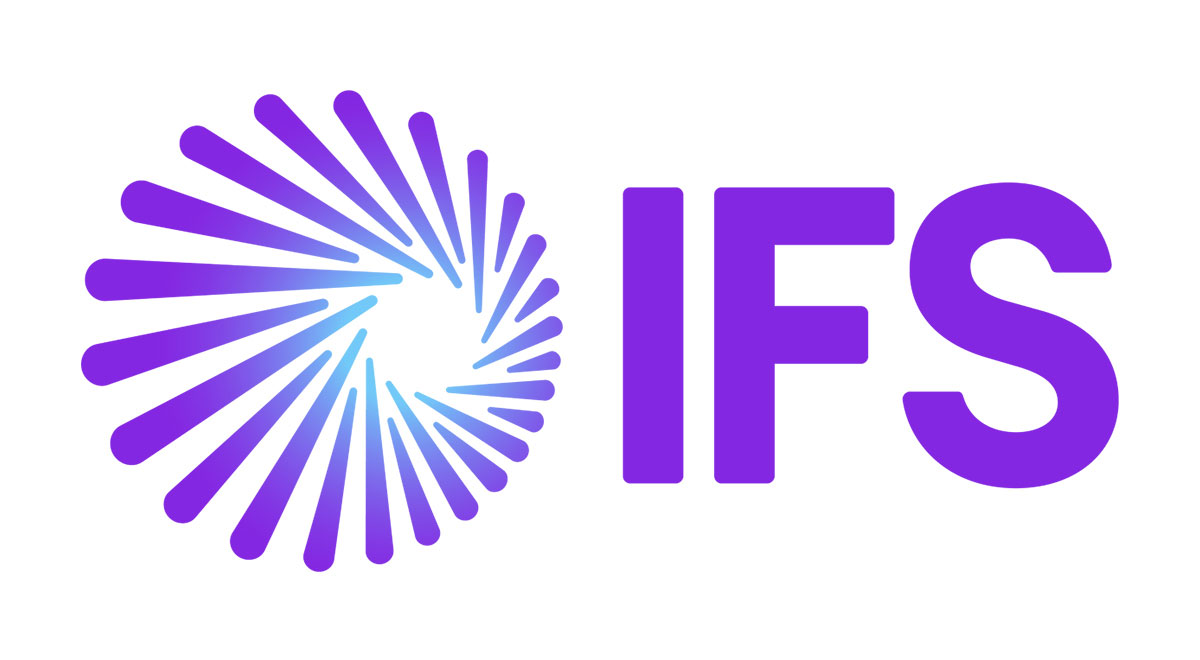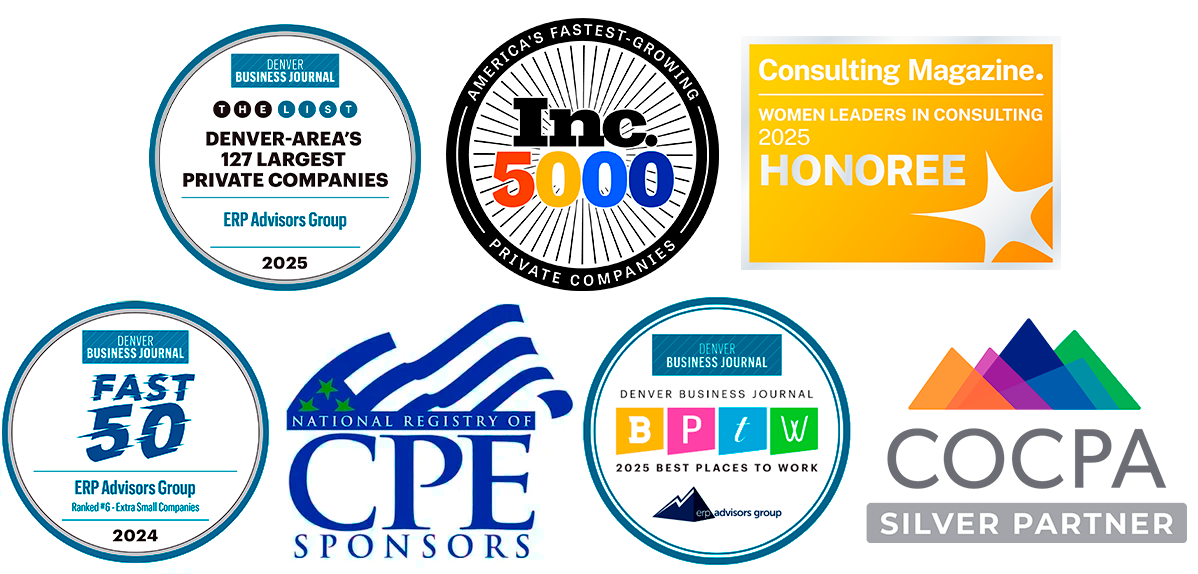
IFS is in more than 50 countries worldwide with 500+ partners and thousands of customers. They aim to help companies engage customers, empower employees, and optimize assets, especially through their newer cloud offerings. Take advantage of this episode of The ERP Advisor where we will provide an inclusive outline of IFS.
IFS
IFS is privately owned by EQT, the same private equity group that owns Acumatica. IFS is governed by its Executive Management Team which is divided into four main regions of focus: Southern & Western Europe, Northern & Central Europe, the Americas, and APJME&A (Asia-Pacific Japan, Middle East, and Africa).
Founded in 1983, the company currently employs over 4,500 employees across more than 50 countries. Its partner network is comprised of over 500 companies that serve thousands of customers worldwide. IFS garners just under a billion dollars a year in revenue.
What Does IFS Sell?
IFS offers a unified platform, IFS Cloud, which offers customers the ERP functionality they expect, alongside EAM and FSM capabilities, driving visibility across an entire organization. The cloud solution is composable allowing customers to select capabilities for their specific industry needs. Its cloud solution improves data connectivity, scalability, and processing efficiency. IFS Cloud has out-of-the-box options in process automation and connection to external data and software and provides open APIs and low-code customizations.
It is particularly well-known for its Field Service Management solutions, including ERP functionality for automating processes for field workers, salespeople, accounting, inventory, and equipment maintenance. For field workers that need to track their time per job, code it to a contract or warranty, account for parts consumed off their truck, and ensure accounting has all the correct information for sending an invoice to their customer. Additionally, Field Service companies need to adequately track, schedule, and dispatch their technical resources and vehicles for efficient routes that are timed correctly for the scheduled services or repairs. All these processes are automated through IFS’s solutions.
IFS’s Enterprise Resource Planning is a prominent solution within the manufacturing industry. By offering deep industry expertise and specific industry functionalities from design integration through supply chain management, IFS offers its customers support throughout the entire product lifecycle. IFS Cloud provides the control and flexibility to manage the production process across multi-manufacturing modes, from discrete to process. Outside of the core capabilities, IFS also brings CRM, Quality, HR, Finance, Document Management, and Globalization, which are often missing in manufacturing solutions, to the table.
In addition, IFS’s offerings track the process complexities of maintaining heavy equipment that consumes parts, requires maintenance schedules, and uses for jobs. Enterprise Asset Management, one of IFS’s core differentiators, is traditionally a major requirement for process manufacturers, mining, energy, and other industrial asset-intensive clients.
Alongside Field Service Management, Enterprise Resource Planning, and Enterprise Asset Management, IFS offers fully integrated modules that automate Financials and Human Resources/Payroll core processes.
What Kind of Partnership Ecosystem Does IFS Have?
IFS’s partnership ecosystem expands across multiple verticals and geographies to partners that deliver solutions based on industry knowledge and experience. They have developed joint programs to incentivize partners to refer, resell, and co-sell activities, encouraging personal relationships and continued innovation.
IFS has commercial partners who sell their software licenses. This group includes Channel partners, Global System Integrators, and Regional System Integrators.
Its service partners within the partnership ecosystem help clients quickly realize their return on investment by providing implementation and continuing support. These partners aim to make it easy for clients to implement complex information technology and assist in managing implementation services projects.
A major focus of IFS is to partner with technology vendors who provide greater innovation for their clients with the integration of best-of-breed modules with built-in feature-rich functionality.
Why Does IFS Win Over Their Competitors?
IFS wins over its competition by offering deep Enterprise Asset Management, Field Services, and key functionalities such as supporting equipment, maintenance, services, jobs, and time tracking that work together across one unified platform with Accounting and HR/Payroll. Its industry expertise in Aerospace & Defense, Energy, Utilities, & Resources, Construction & Engineering, Service, and Manufacturing industries help it beat its competition, especially with those clients that require an enterprise-scale technology platform.
Its solutions have been categorized as user-friendly, making it ideal for many organizations, especially those with less technical users.
Conclusion
As IFS continues to expand into the North American market, users can expect continued innovation and industry-specific solutions, especially within its five core industries. Its friendly user interface makes its solutions stand out and is one of many reasons why its reach will continue to grow. Its IFS Cloud product will enable less-tech savvy industries to migrate to the cloud and thus reduce their overall IT costs over time.
Announce 1: This is the ERP Advisor.
Announcer: The ERP Advisor’s overview of IFS.
Juliette: Hello, everyone, thank you for joining us for our webinars today. This summer, ERP Advisors Group is spotlighting the most prominent vendors in the ERP software market. Today, we will be discussing IFS and their offerings, and providing key insights into our experiences working with them. Hi Shawn, thank you for joining me today.
Shawn: You bet.
Juliette: Yeah, so I guess I'm IFS is a large company, right?
Shawn: Pretty big, yeah.
Juliette: Can you start us off by maybe talking to us about who they are and what they.
Shawn: Yeah, it's probably one of the largest ERP vendors that you may not know that much about.
Juliette: OK.
Shawn: That's kind of why IFS is an interesting company. It's out of Sweden, Scandinavia and it's actually under a billion a year in revenue, but they're in like 50 countries. The solution’s been in existence for a long time, for well since about 1983 according to my cheat sheet. So, you know we're talking about 40 years, so it's been around for a really long time, but it's bigger kinds of software. They sort of target more of a smaller end of Tier 1, maybe it fits in just below an SAP, but definitely the larger size of Tier 2 solutions for sure. So, it's industrial software, we'll talk more about that in a minute, but that's IFS.
Juliette: What type of software do they sell, and do they focus on certain industries, or do they work better in different industries?
Shawn: You know, they're kind of an interesting firm--in that I'm trying to think of who would be similar-probably some of the in Infor Baan product, it's now called LN. But, their software, IFS is more based around enterprise asset management. So, think about a company that has a lot of assets like a power generation company, they own utilities, not just the utility company but they own like the generation facilities. So, there's a lot of maintenance, repair, and operations or MRO that happens, so that's a big deal. There are a lot of field services management companies that use IFS as well as core sort of ERP functionality.
So that's why you get that heavy asset-intensive industries. Again, think about an organization that has a ton of field services people out there, but they also do manufacturing. What’s interesting in the manufacturing space is that they do have a pretty big focus around process manufacturing as well, which is different than discrete. Discrete of course is making a specific thing like a water bottle or a phone, whereas the process is more chemicals or even some kinds of foods, ingredients, you know, that type of thing.
Juliette: Right.
Shawn: So, when you think about IFS that's usually where we tend to put them into is sort of around projects based, field services, heavy asset, great equipment maintenance and tracking solutions, preventative maintenance, you know we got a lot of machines. You really think about these great companies around the world that have lots of assets that need to be maintained and updated and scheduled and IFS is really best for that kind of solution.
Juliette: Ok, well can you talk a little bit about the prominent features of this particular platform?
Shawn: Yeah, just touching on some of them even. You know enterprise asset management, when you think about asset management it's not just depreciation, the financial side handles depreciation really well. But this is things like maintenance schedules, work orders, preventative maintenance, and vehicle information management. You think about a lot of assets, and you have a lot of stuff you have got to track about the usage of a specific project. They're super good in that enterprise asset management space.
Also like I said, field service is definitely project-based manufacturing, batch process manufacturing, all the kinds of manufacturing stuff that's out there, and even a lot of project stuff too. There's some good job and project costing that would be needed as well as even environmental health and safety. And some of the HR stuff that an organization that has a lot of assets would need; IFS actually has those solutions as well. So, it's definitely a full breadth of software. We have a client right now, or a prospect, that we're talking to that uses IFS just for field services, and one of the options for them is to roll out IFS across the whole organization for accounting and some manufacturing stuff that they're doing. So IFS can do that kind of stuff.
Juliette: Right.
Shawn: But you know if you think about the opposite side would be Workday. Whereas IFS is more about the machines, the counting, the projects, the maintenance, you know all this stuff. But they do have HR, payroll, expense management, and recruiting as well as some of those other functions. But the Workday solution is more targeted towards a knowledge worker business, and there are others for sure. Whereas IFS is more around capital-heavy, capital-intensive businesses.
Juliette: Can the software be customizable to fit an organization’s needs or is it you buy the package, and you get what you get, and use what you need kind of thing
Shawn: It can be customized and almost any software solution can be customized, even QuickBooks can a little bit. So, IFS does have a pretty good development platform as well, so if you need to build stuff out you can. Now, IFS has spent a lot of effort in the last couple of years getting their cloud strategy really dialed in, and they're moving towards the public cloud solution, having the solutions up on some of the bigger data center systems and that. And with that kind of a new platform does come kind of this configuration methodology, what's the best way to customize and what's not. So, IFS implementations traditionally are pretty big. They're not as big as maybe some of the bigger tier ones, but they're right underneath that because there is so much configuration customization that goes into that solution for sure.
Juliette: Ok, can you speak to their ownership structure and then what kind of partner ecosystem that they have?
Shawn: Yeah, I can definitely do that. Interestingly enough, as a Swedish-based organization, IFS is owned by a private equity firm called EQT. And it’s interesting because that organization--I think I researched this at one point--it's the private equity arm of some Swedish families that have been around for a long time, so there you go. And that family that firm or fund, I guess there's multiple funds that EQT has, and I'm sure there's more than just that investor, but that organization in EQT also has taken another ERP under its wing called Acumatica.
Juliette: Oh, interesting.
Shawn: So EQT owns both IFS and Acumatica; it's very interesting. But those two applications play so differently they are never going to overlap, so they're two different solutions. But recently EQT sold a minority interest to a firm called HG, which is another private equity firm. I'm not sure where HG is out of actually. But when HG put in that investment, we don't know how much, we just know they became a significant minority investor. The value that was put on IFS, and they actually have another business called Work Wave that is more specific to field services, that are kind of solutions together. But the market value that was put on that business was $10 billion.
Juliette: Oh, wow.
Shawn: So even though maybe you've never heard of IFS before, this organization’s worth $10 billion. They’ve got a lot of customers. They’ve got a lot of people in the space that are using their solutions; 10,000 customers, and 4,500 employees in 50 countries. They've got good revenue, and they’re private equity backed by a pretty strong firm. I mean we've watched the EQT as it relates to IFS as well as Acumatica, and they seem to be a long-term player.
Again, they sold just a little piece of their equity it sounds like to HG, who also seems to be kind of a long-term player. HG has some other business. There's a financial planning and analysis tool, a corporate performance management tool called Prophix. HG I think actually owns all of Prophix. So, these guys plan software also EQT and Acumatica, so it all makes sense, there are many other solutions too like the Insight Software that HG has and some other stuff. What I'm trying to say is it’s a good story, but IFS’s presence isn't as much in the US as it is globally.
Juliette: That's what I was going to ask you. Since they're based out of Sweden, do they maybe work more with European companies and they're just slowly becoming more known here in the states? Is that right, or no?
Shawn: I think that's right. That's what I'm observing. Again, anybody out there that's listening to this and has a different opinion needs to tell us, for sure. But that's exactly what I'm seeing. I'm seeing two things that support that. One is that IFS is investing in their salespeople, a lot more North American-based salespeople. And they're good people that have good ERP experience and they're nice to talk to, I love that. It's so nice to have nice salespeople. So that's one thing, but also their partner channel, I think they're increasing their partner channel in North America: there’re some great partners. We work with one today that's really, really good.
That investment in the partner channel really tells us a lot because you have companies, enterprise consulting I think it's called; I think they're North America’s first IFS platinum partner. We work with them when we want to bring in IFS. We work with IFS directly too. So, I think we're going to see more IFS come up because it's also a nice alternative to SAP. That's who really competes in the spaces they operate the most in, and it is lower cost; they're getting their cloud strategy set, nice viability, long-term road map stuff, etc.
Juliette: Right, well from your experience of working with IFS can you talk to why they win over their competitors?
Shawn: That's a great question. They really do have this heavy capital-intensive kind of micro-vertical, whether it's manufacturing or mining or medium-sized energy companies, they have a cost-effective solution that's going to be easier to deploy than the tier ones, but it's much deeper in those areas than say NetSuite or even on Acumatica or a more general ERP. That's where we're seeing them coming and I think we're vetting them right now in a batch manufacturing environment, we'll see how they do there, but so far so good.
Again, good people to work with and it's interesting to note the Sweden origins because if you look at the two solutions that Microsoft, I know we're going to talk about them at another time very soon, has as the go-forward products are also from Scandinavia, interestingly enough.
Juliette: Right, right.
Shawn: You look at Germany, you can't not look at Germany, and then you think about the Scandinavian influence on software. I mean, there's tons of software written in North America also, but anyway, I think it's interesting that IFS really has broadened out across the world. But again, I think we're going to see them more in North America very soon--we already are. Especially with some of the partners that are really taking responsibility for the product and getting it out of non-existence with the market.
Juliette: Right, right, right. Well, can you talk to us a little bit about their pricing structure?
Shawn: You know it's pretty straightforward from what we've seen. If you think about a typical project, usually, we will put together an RFI and we sort of say “ok, here's the customer’s requirements, the business requirements, and here's the number of users that the customer has in these different areas.” Pretty basic; so, without getting into all the details that we can't because it is confidential, but if you look at IFS’s model, it definitely sort of reflects that kind of “here's sort of the subscription cost based on the modules that you're going to need.” “And based off the users here's a term that we can do.”
They're very willing to work and be flexible with a little bit longer term which is good. Our customers, the heavy-asset intensive industries, they're kind of risk-averse for technology. They spend a ton of money on autonomous mining trucks cruising around in Africa and wherever. I mean they spend tons and tons and tons of money on batch process machines that are mixers and heaters and condensers and all that stuff. But when it comes to enterprise software they're not as aggressive, they're a little more risk-averse there. So, we like that IFS is willing to do good long-term contracts with our customers so that when they get into the solution, we can lock in the pricing for that.
Juliette: That's right. Better to not be surprised later down the road, right?
Shawn: That's exactly right. So pricing is pretty common and, again, on those good contracts, I think things are going well there. Implementation-wise, the rates are very fair and very competitive with everybody else. So, it's their competitive pricing for sure. They do kind of tend towards, I would say more the Tier 2, upper end of the Tier 2 pricing, in terms of recurring costs without getting into too many specifics, so you're going to want to have a business that's bigger, that has more ROI that they're going to get from the software because they can automate more processes, streamline things, and save people a lot of time. But again very, very competitive pricing for sure.
Juliette: OK. Well Shawn, thanks so much for sharing what you know about IFS and maybe we'll circle back too once you've had a little more experience with them, and we can learn more about them later down the road.
Shawn: Yep, that sounds great.
Juliette: OK, thank you everyone for joining us today. Continue to be on the lookout for our multi-part series this summer that will help advance your ERP knowledge and allow you to take advantage of over a century of combined ERP experience from our expert consultants here at EAG, thank you again for joining us bye, bye.
Shawn: Bye, bye.
Announcer 2: This summer, ERP Advisors Group will be reviewing the most prominent ERP software vendors in the market. For more information about these vendors, please visit our website at erpadvisorsgroup.com. You can also find more EAG content by following us on social media or by subscribing to our podcast, the ERP Advisor.



